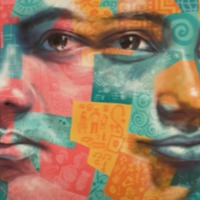Thousands of women and children were taken into slavery during the decades of Sudan’s civil war, mainly from Northern Bahr El Ghazal and the Nuba Mountains. Ngor was ‘redeemed’ (bought out of slavery) by Christian Solidarity International (CSI), a Zurich-based international human rights organization, in 1999. Slave-taking was revived in 1985 by the National Islamic government of Sudan primarily as a weapon against counterinsurgents in the South, and secondarily a way to reimburse its surrogate soldiers for neutralizing this threat.
In 1989 the government created the Popular Defense Forces (PDF), militia trained to raid villages and take people as slaves. PDF recruits were allowed to keep whoever they captured, along with booty of grain and cattle. One study documents 12,000 abductions by name, while NGOs offer estimates ranging from 15,000 to 200,000. The slaves were often moved to large towns in the north on week-long journeys during which the women were repeatedly raped, and then sold to new masters who used them without pay for farming and sexual services. The peace process brought these PDF abductions to an end, but inter-tribal abductions continue in Southern Sudan. In addition, Sudanese children are used by rebel groups in the ongoing conflict in Darfur; Sudanese boys from the country’s eastern Rashaida tribe continue to be trafficked to the Middle East for use as camel jockeys; the rebel organization “Lord’s Resistance Army” has forcibly conscripted children in Southern Sudan for use as combatants in its war against Uganda; and the institution of chattel slavery continues in southern Darfur and southern Kordofan.
Ngor was captured after Northern Sudanese soldiers invaded his village. He was given to a man called Mohammed and subjected to physical abuse.










